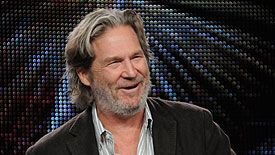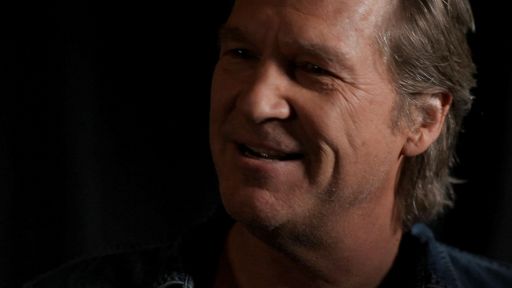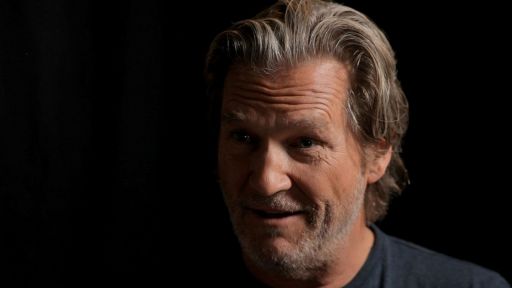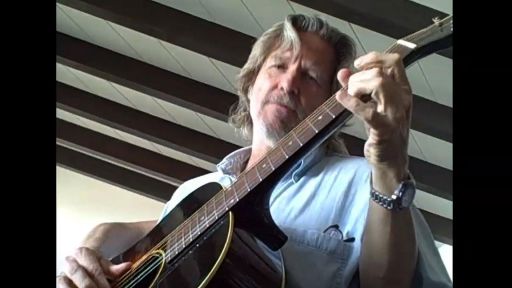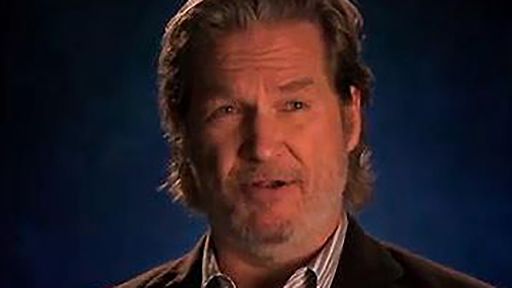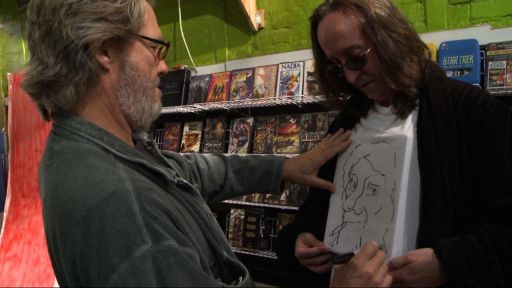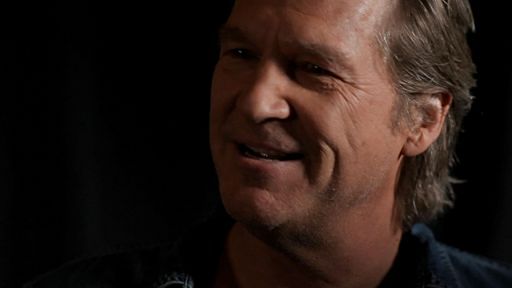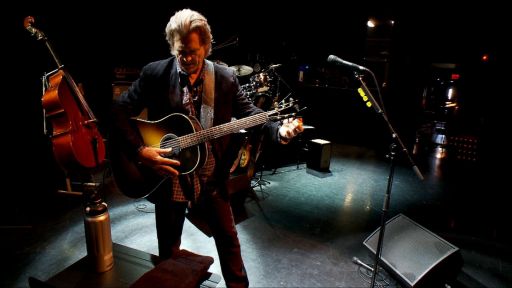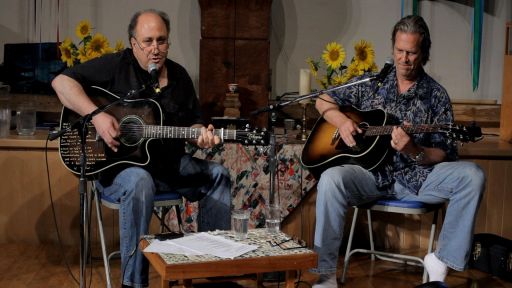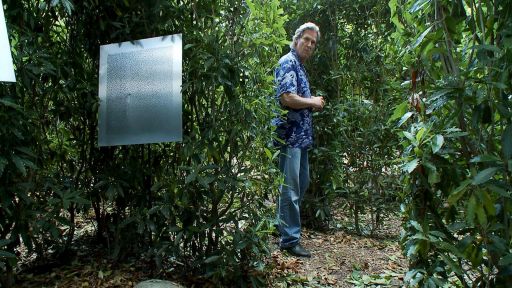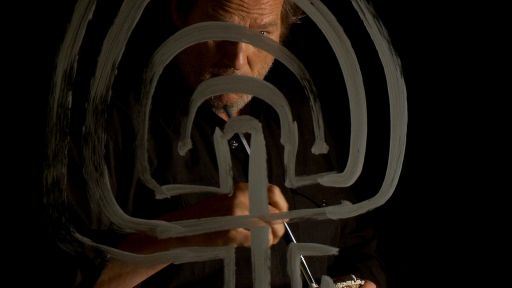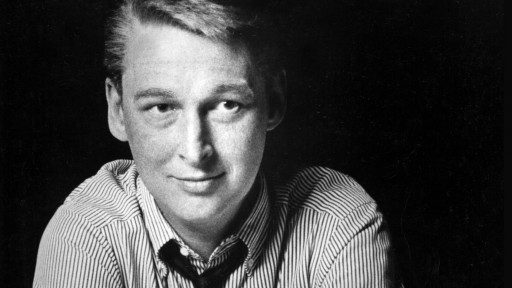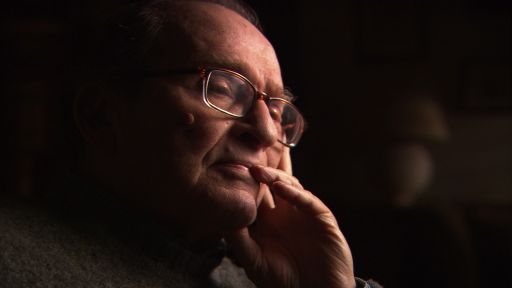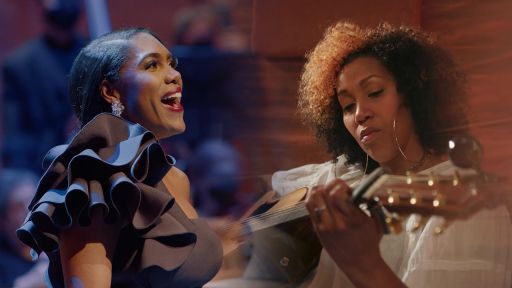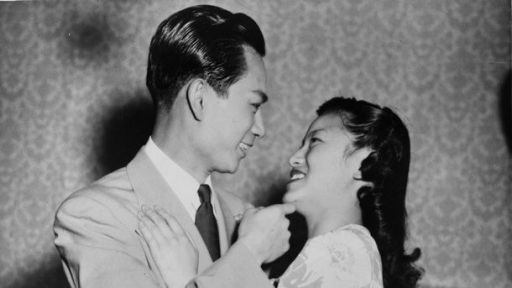Levin discusses what it was like working with the legendary actor, whose appeal, she points out, spans the generations. An Academy Award winner, Bridges is also an accomplished musician, painter, and photographer.
What was Jeff Bridges’ reaction to American Masters’ decision to make a film about him?
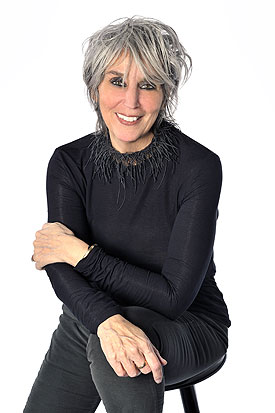
Gail Levin: One of the main points in the film is his reticence to take on projects all the time. So, I don’t think this one is really different for him. But, the twofold of it is that he’s always a little hesitant and he’s always a little bit halting, but once he’s in, he’s in. I think that can be said about this. I think that he was not sure what this meant – when you put this kind of a magnifying glass on somebody, it makes them feel a little awkward. But, having said that, I think he also just decided to get out of the way of it and let it be. So, I would say that’s how he approached it and that’s how I approached it as well – to not be in his way about it, but let him realize that this is his story.
Was there anything that you were surprised to learn about him during the making of the film?
GL: I was surprised to learn that what seems to be an easygoing guy is kind of a guy who frets a bit. He appears to be so easy and “dude-ish” in a way, but he’s not that laid back. He’s not uptight, be he’s intense and he thinks about things…it’s not an easy task for him to just give over to it. In the film, Mercedes Ruehl made this statement about how she felt that there was a sort of melancholy about him – then in the next part of the statement she said, she felt he was not a stranger to sadness. And I think there’s something about that that’s true – there’s another side to him. There is a joyfulness and a kidding around, but I think there is also a part of him that is very thoughtful, very pensive, and a bit darker – a bit more complex than you might expect. He’s not a guy you can take at face value at all.
What was the most challenging part of making this film?
GL: Exactly the same things! I didn’t know him at all, and we had a very short window to make the film in. That was both good and bad. I think it would be very hard to take on a film with somebody that you know well. That’s never a good idea. But also, you have to have time to build some sort of trust with someone and have the feeling that they know you’re going to be okay with them and that you feel that they’re going to be okay with you. We had very little time to establish that. The producers on this film – Neil Koenigsberg, Nikki Silver, Orly Wiseman – they’d worked with him for some time trying to do a feature film on a young adult book called The Giver. They know him very well, but I didn’t know him at all. But I think based on him knowing them, he was willing to assume that I was okay for this. Hopefully, that all worked out. Still, he and I didn’t have a relationship. Luckily enough on my end, I’ve watched his films all my life, so I knew his body of work, which was a big plus. But I was not an intimate of his at all, so there was a little bit of that – he had to sort of decide if I was okay, I had to hope he thought I was okay. It’s nervous making to do these things! What’s also good is that I didn’t develop a crush on him. (Laughs)
Bridges not only acts, but also is a musician, artist and accomplished photographer. How much of this is this reflected in the film?
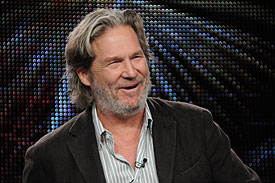
GL: It is. He’s extremely talented, and not just as an actor. I think he himself had hoped that he would be a musician – music is not something that just came with Crazy Heart. He’s played guitar since he was a kid, and loves it. So that was something to learn, because I always just thought – he’s a great actor, and he was able to learn enough guitar to really pull it off in Crazy Heart. I didn’t realize the extent of his love for music and how much he played and how much a part of his life that had always been. So, it’s really his double muse, music and acting. I think what he loves now and what is extremely wonderful about having won an Oscar for Crazy Heart is, he wins the Oscar playing a part of something he always wanted to be, which is a musician. He’s also got a little band now and does some public appearances, and I think that bridging (pardon the pun) of the loves in his life is nice.
In his paintings, he’s really rather Picasso-esque – he’s very free and fluid. It’s beautiful stuff. We devised to do this plexiglass idea in the film, which is from Picasso. I’ve always wanted to duplicate it, and he was the perfect person to do it with; he really got into it, which was fun.
You have directed and produced a number of shows for THIRTEEN, including previous American Masters films on Marilyn Monroe and James Dean. What first drew you to documentary film making and public television?
GL: For me, the arts are just an endless source of intelligence, brilliance, imagination, and originality. How people do what they do is so fascinating to me. I think it’s mysterious; it’s not something people can explain to you. So, if there’s some way to hang around, get some access, and get some ability to watch some of what happens, I think that’s very compelling stuff and we’re lucky if we can see some of that. I think the beauty of documentary work is that it’s a mystery too – you never know where it’s going to lead you. You start out with some notion of it, but it’s very different from a script. A script you write, you shoot against, and you know what the story is going to be. There’s always the element of surprise, but the surprise comes from performance, from something that’s improvised, it comes from someone who sees it inside an already determined framework. In documentary, it’s never determined. It’s never the same, and affords enormous possibility.
Is there anything else about the film you would like viewers to know?
GL: I would love people to know about John Goodman’s interview. In The Big Lebowski, John Goodman was hilarious, but he was a little bit hard to interview – he came in a little guarded. We started talking and all of a sudden, he started to laugh about Lebowski, about the character and about Jeff’s performance – he started to laugh in that way you laugh as a little kid, you start giggling and then you can’t stop. So we started laughing, but we didn’t want it to get picked up on the track…but I also wanted to keep him laughing. It was great!
Another thing I’m sorry didn’t happen was that we missed getting in one of Jeff’s friends since the 4th grade. Jeff has very long friendships. And these are not with movie stars – I’m sure he has those as well, but these are friends that he’s very loyal to, they’re very loyal to him, they still hang out…it’s very cool, and I’m sorry that that didn’t get enough real play in the film. He also has a strong family life, which we didn’t get to show enough of.
One other thing we didn’t get to do enough with is Jeff’s charitable and humanitarian work. He’s been working now with a group called No Kid Hungry, and I know he’s very strongly advocating to be sure that children eat in this country – there are hungry children on a level that we would not believe here.
What is your favorite Jeff Bridges film?
GL: My favorite Jeff Bridges film, aside from Lebowski – which is just a masterpiece – is Cutter’s Way… it is a small, noir-ish film, from the early ’80’s, and it is superb. Aside from that, my next favorite is The Fisher King, also because I adore Terry Gilliam, the director.
This interview was originally published on WNET’s Inside Thirteen.

